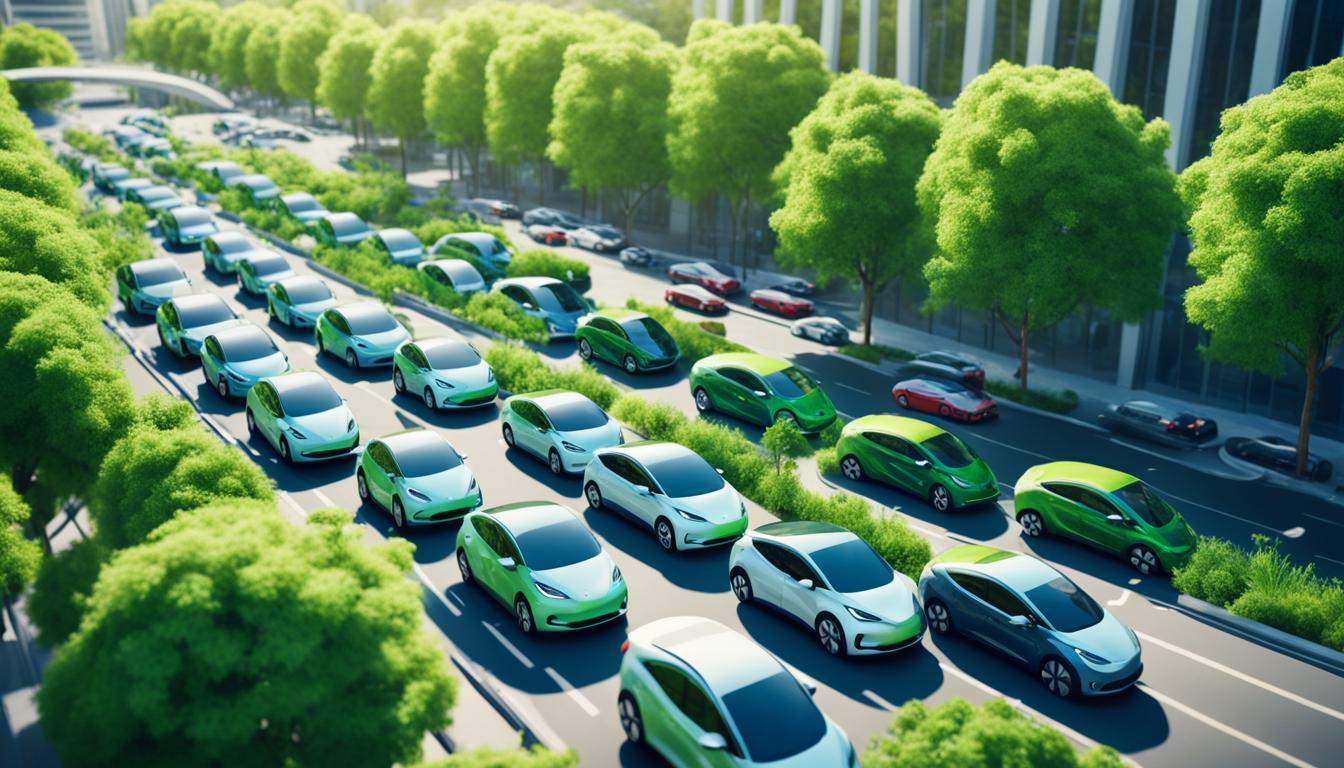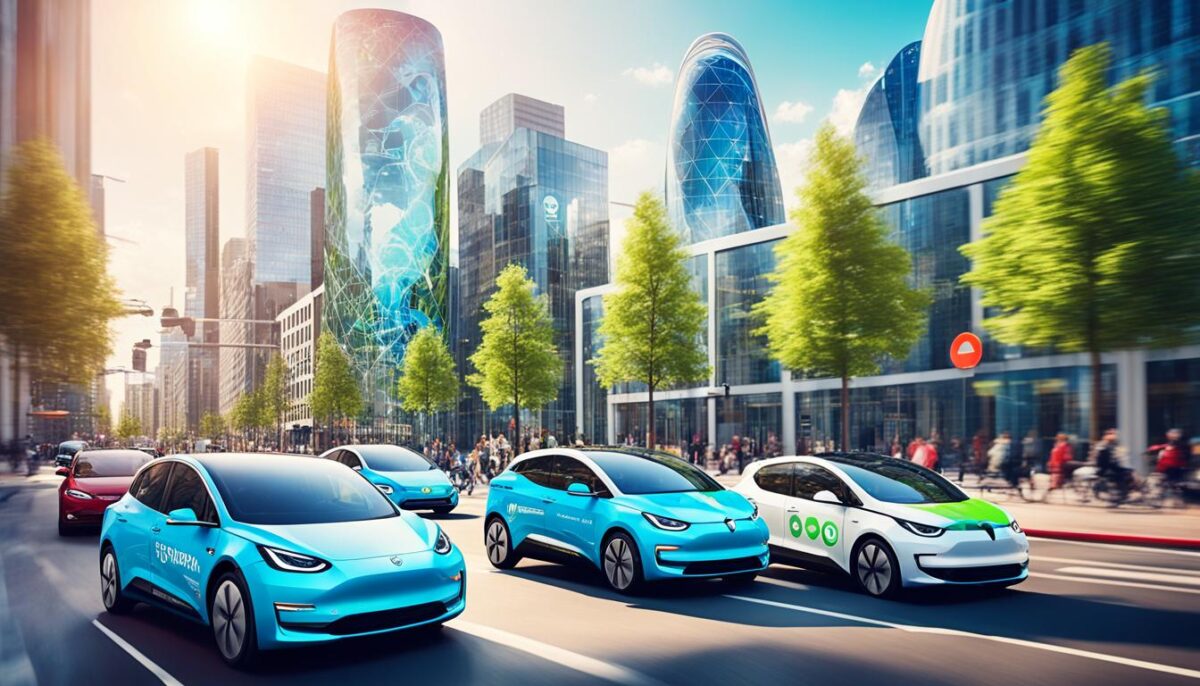Top 5 Cities Embracing Electric Car Sharing and What They Can Teach Us

As we navigate the challenges of urban living, the significance of electric car sharing emerges as a promising solution to enhance sustainability and urban mobility. With increasing environmental concerns, it’s crucial for us to understand how electric car sharing programs contribute to reducing our carbon footprint while simultaneously improving transportation options. Reports from the International Energy Agency indicate a remarkable 40% surge in electric vehicle sales globally in 2020, underscoring a growing demand for green transportation. Cities like San Francisco set exemplary standards by implementing effective electric car sharing initiatives, providing valuable lessons for urban areas striving to adopt sustainable practices.
Understanding the Rise of Electric Car Sharing
The shift towards electric car sharing reflects our growing commitment to sustainable transportation. With the transportation sector responsible for nearly 29% of all greenhouse gas emissions in the United States, the importance of finding cleaner alternatives cannot be underestimated. Electric vehicles (EVs) are leading the charge in this transition, greatly reducing our carbon footprint and supporting green initiatives across urban landscapes. As urban air quality continues to suffer, adopting electric car sharing emerges as a key strategy for improving city environments.
The Importance of Sustainable Transportation
By embracing sustainable transportation methods, we not only combat climate change but also foster healthier communities. Electric car sharing connects with urban planning efforts designed to enhance accessibility for all citizens. This approach promotes a shift away from traditional vehicle ownership, addressing the pressing need to lower overall transportation demand. Investing in electric vehicles is vital for cities striving to achieve a balance between growth and environmental responsibility.
Key Benefits of Electric Car Sharing
Electric car sharing presents numerous advantages that contribute to the broader ecosystem of mobility solutions. Key benefits include:
- Cost-Efficiency: Users pay only for the time they need the vehicle, reducing ownership costs significantly.
- Vehicle Sharing Advantages: Shared use lowers the number of cars on the road, which helps minimize congestion.
- Accessibility: This model provides transportation options for individuals without access to personal vehicles.
How Cities Are Adapting to Meet Demand
To accommodate the increasing demand for electric car sharing, cities are implementing several adaptive strategies. Enhanced infrastructure development includes the installation of widespread EV charging stations. Local governments collaborate with private companies to promote green initiatives and incentivize the adoption of electric vehicles. Cities like Paris and Amsterdam lead by example, showcasing successful policies that not only meet current needs but also anticipate future transportation challenges.

| City | Charging Stations | Vehicle Sharing Programs | Incentives Offered |
|---|---|---|---|
| Paris | 2,000+ | Zipcar, Communauto | Tax breaks, subsidies |
| Amsterdam | 2,500+ | Greenwheels, Sixt share | Free parking, preferred access |
| Los Angeles | 1,500+ | Getaround, Zipcar | Incentives for public charging |
Top 5 Cities Embracing Electric Car Sharing and What They Can Teach Us
As we explore the top cities leading the charge in electric car sharing, we discover innovative practices and policies that promote sustainability while transforming urban mobility solutions. Each location brings its unique strategies to the table, showcasing how electric car sharing programs can benefit our urban environments.
City 1: San Francisco
San Francisco stands out as a pioneer in electric car sharing. With providers like Share Now and Getaround, residents enjoy a range of electric vehicles for short-term rentals. The city’s commitment to sustainability is reflected in its ambitious goal of eliminating greenhouse gas emissions by 2050. Through effective policy development and data analysis, we see that electric car sharing helps reduce traffic congestion and emissions, reinforcing its role in fostering green mobility.
City 2: Amsterdam
Amsterdam’s approach integrates electric car sharing with a robust cycling infrastructure. The city has implemented eco-friendly initiatives that encourage the use of electric vehicles through various incentives. Reports indicate that over 30% of the car-sharing fleet consists of electric options, significantly lowering the urban carbon footprint while highlighting the city’s commitment to green transportation initiatives.
City 3: Berlin
Berlin has made significant investments in electric vehicle sharing, seamlessly integrating it into its public transport system. Local providers like Mobiko and Share Now have expanded their EV fleets, offering convenient options for residents. Studies reveal that this initiative has positively impacted air quality metrics, showcasing the effectiveness of Berlin’s electric car sharing programs as part of its broader transportation innovation strategy.
City 4: Los Angeles
Los Angeles has rolled out numerous electric mobility solutions aiming for a sustainable transport ecosystem. Programs like “Electrify LA” emphasize a holistic approach to expand electric vehicle infrastructure, positioning electric car sharing as an accessible option for many. Data from the LA Department of Transportation demonstrates a marked reduction in fossil fuel dependency, aligning with the city’s goals for a cleaner urban environment.
City 5: Toronto
Toronto’s successful strategy for electric car sharing is rooted in collaboration between public and private sectors. The launch of programs like “Car2Go” promotes electric options across urban neighborhoods. Evaluation reports indicate that the increase in shared EVs contributes to less traffic congestion and a cleaner environment, emphasizing the effectiveness of Toronto’s green transportation initiatives.

The Future of Electric Car Sharing
As we look ahead, the future of electric car sharing appears to be a promising avenue for enhancing sustainable mobility in our urban landscapes. With the rise of smart cities, the integration of electric vehicles into public transport frameworks aims to create a more cohesive transportation ecosystem. We anticipate that as technology continues to advance, services will evolve to meet our increasingly sophisticated needs.
Technological innovations such as autonomous vehicles and improved battery capacities are set to drive significant growth in electric car sharing programs. The enhanced performance of these vehicles will make them a more viable option for everyday users, elevating the convenience factor that many seek in transportation solutions. With the integration of real-time data and connectivity, accessing shared electric vehicles should become seamless, improving user experiences across the board.
Moreover, industry experts predict that by 2030, a major share of vehicle-sharing fleets will shift towards electric models, reflecting our collective push for more sustainable mobility solutions. As cities prioritize integrated transport systems, we can expect an increasingly accessible network that brings together various modes of transportation. Ultimately, electric car sharing isn’t just a fleeting trend; it symbolizes a fundamental shift in how we perceive urban mobility in the future.
